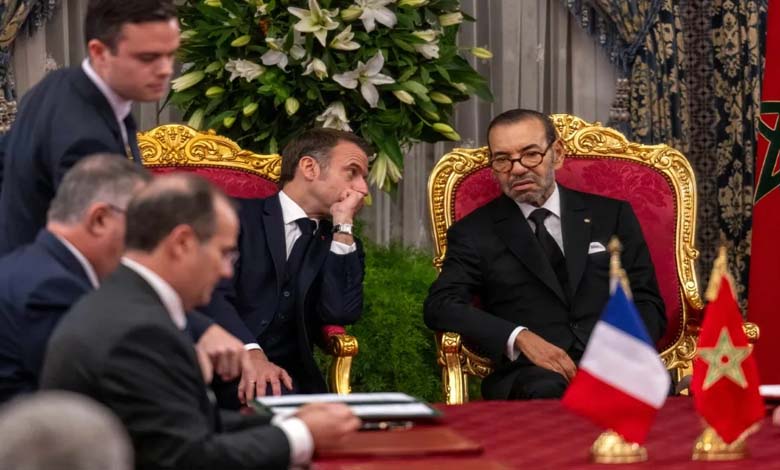France Turns Words into Action in Support of Morocco’s Sovereignty Over the Sahara

The French ambassador to Morocco, Christophe Lecourtier, has reiterated France’s commitment to activating its strategic partnership with the Kingdom, particularly through projects in the southern provinces, thereby demonstrating Paris’s firm support for Morocco’s sovereignty over the Sahara. This stance also signals a clear intent to advocate for Morocco’s position in international institutions.
-
Ghana Supports Morocco’s Proposal on the Sahara
-
Macron Plans to Strengthen Ties with Morocco by Opening a Consulate in Laayoune
Lecourtier stated during a reception hosted by the French Embassy in Rabat to mark Bastille Day that “Paris has begun translating its statements into action by expanding cooperation with the southern provinces to include education, culture, the economy, development projects, and consular services.” He emphasized that residents in these regions now have access to the same support and services as those in other parts of the Kingdom.
This message confirms that France’s backing of Morocco’s autonomy initiative, under its sovereignty, as the sole viable solution to the Sahara dispute, is not mere rhetoric but a tangible and deliberate policy.
-
Larcher’s Visit to the Moroccan Sahara Reflects France’s Interest in Strengthening Cooperation with Rabat
-
The ‘La France Insoumise’ party rallies to impeach Macron
The repeated visits of Lecourtier and other French officials to cities in the Sahara, and their efforts to attract French investment, reflect Paris’s desire to actively contribute to the economic and social development of the southern provinces. This aligns with the strategy led by King Mohammed VI to transform the Sahara into a regional economic hub and to build on the Kingdom’s diplomatic successes in this issue.
The French ambassador stressed that “the current relationship between Morocco and France goes beyond simple bilateral ties to become a strategic commitment, reflecting a shared vision to shape a unique future in a changing world.” He pointed out that the visit by President Emmanuel Macron in October 2024 opened up new prospects for a more integrated and ambitious partnership.
-
The Election Chaos Did Not Affect Macron’s Visit Program to Morocco
-
The Sahara, a pivotal file for determining the trajectory of relations between Paris and Rabat
This renewed diplomatic engagement follows a phase of hesitation on Paris’s part regarding the Sahara issue—an issue that Rabat has long considered central to its foreign policy and partnerships.
Recent French initiatives, including the opening of visa centers in Saharan cities such as Laâyoune, illustrate a practical and symbolic reinforcement of France’s presence in the region. These actions imply a de facto acknowledgment of the Sahara as an integral part of Moroccan territory and ease access to consular services for local citizens—advancing the principle of bringing administration closer to the people.
-
France expresses a strong desire to end tensions with Morocco
-
Evolution in Moroccan-French relations despite some unresolved and mysterious issues
France is also encouraging its companies to invest in Morocco’s southern provinces, particularly in renewable energy and infrastructure sectors. This contributes to regional development and strengthens Morocco’s sovereignty over these areas.
France’s position reinforces the growing international recognition of Morocco’s sovereignty over the Sahara and of the autonomy plan as a credible solution. As a permanent member of the UN Security Council, Paris can play a key role in rallying further support for this initiative.
While international consensus is increasingly coalescing around Morocco’s proposal, support for separatist narratives continues to decline, leading to their isolation on the global stage. France’s stance may prompt other countries—especially in Europe—to take clearer and more explicit positions in support of Morocco’s sovereignty over its southern provinces.












